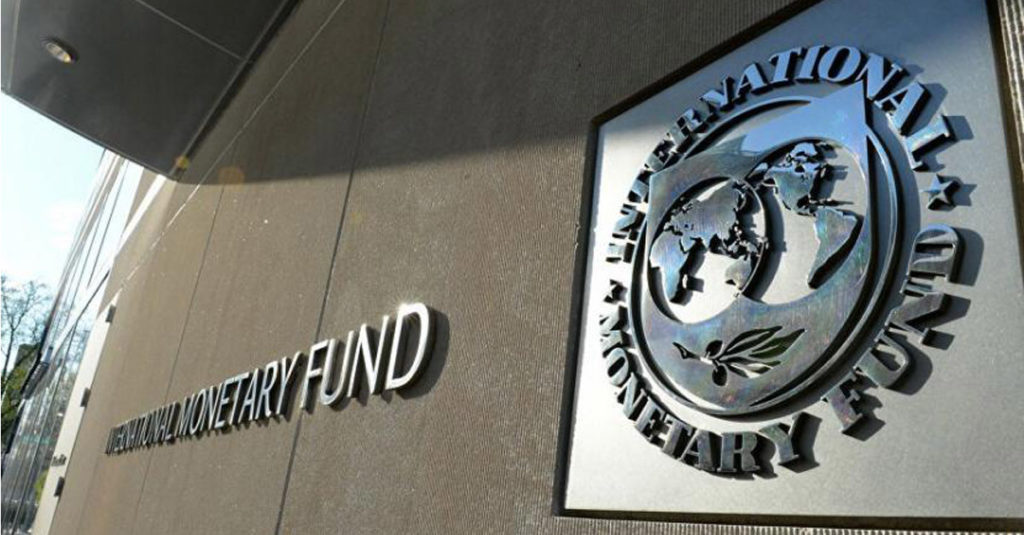
MUSCAT – The Sultanate welcomed the International Monetary Fund’s (IMF) report on 4th Article consultations 2021. The report caps the meetings of IMF experts with representatives of the Ministry of Finance, the Ministry of Economy, the Central Bank of Oman (CBO) and a number of government and private organisations. Discussions held in the course of this year through virtual meetings focused on enhancing economic recovery policies, fiscal sustainability, protecting financial and monetary stability and placing the national economy on a path capable of achieving strong and sustainable growth rates.
The IMF hailed the procedures undertaken by the Sultanate to contain the impacts posed by coronavirus (Covid-19) pandemic to public health and the economy. It commended the efforts exerted in conducting a comprehensive immunization campaign, enhancing the entrepreneurship climate, supporting economic sectors that suffered most from the pandemic.
In particular, the IMF praised the Economic Stimulus Plan (ESP) and social protection initiatives, including interest-free emergency loans, exemptions from some taxes and fees (and discounts of the same), the repayment of taxes in installments, the establishment of a Job Security Fund and expanding the base of zero-VAT goods from 93 to 488 goods.
The IMF also took note of the fact that the CBO facilitated monetary conditions through the reduction of interest rates and liquidity operations, besides postponing the repayment of loans. The IMF also commended efforts made to empower the social security network, upgrade the capacity of management of public resources (government assets, government firms’ competitiveness).
The IMF report referred to the fiscal policies undertaken this year (2021) and the Medium Term Fiscal Plan (2020-2024) which seeks to create a balance between rectifying areas of weakness in general finance and supporting economic recovery, along with social protection. It is expected that the fiscal policies will create balance between supporting the economy and containing the risks of financial stability.
(Source: ONA)
IMF experts expect that economic activities in the Sultanate will recover gradually, with expected GDP growth of 1.5% in 2021 for non-oil sectors driven by high vaccination rates, so that the actual growth rate could continue to take shape till 2026, culminating at 4%.
Speculations indicate that the State Budget will achieve surplus next year (2022), with expected decline in public debt to 47% of the GDP by 2026. It is also expected that fiscal sustainability and the rise in oil prices will cause 0.6% reduction in current account deficit, in GDP, by 2026.
The IMF recommended a set of policies aimed at accelerating economic and financial recovery. These include the Sultanate’s pressing ahead with measures to achieve targets of the Medium-Term Fiscal Plan, set out a better framework for the management of assets and sovereign funds and focusing on expanding the base of non-oil revenues, being a resilient front in addressing fluctuations of oil prices and the economic cycle.
At the level of monetary policies and the stock market, the IMF recommended enhancing the effectiveness of the monetary policy, consolidating the banking sector by diminishing banks’ dependence on deposits of the government and public sector establishments and upgrading the role of the stock market in funding the State Budget.
The IMF also recommended continued improvement in the level of private sector competitiveness, consolidating the social security network, increasing the labour market’s flexibility, accelerating the settlement of disputes, encouraging employment in the private sector and fostering green economy initiatives.
The Sultanate reaffirmed its determination to implement programmes and objectives of Oman Vision 2040, along with economic structuring aimed at achieving fiscal balance between revenues and public spending, with the overall aim of supporting economic growth, increasing transparency, enhancing the availability of data about economic and financial performance, among other measures.
The IMF publishes the 4th Article Consultations Report for the first time.

0 Comments